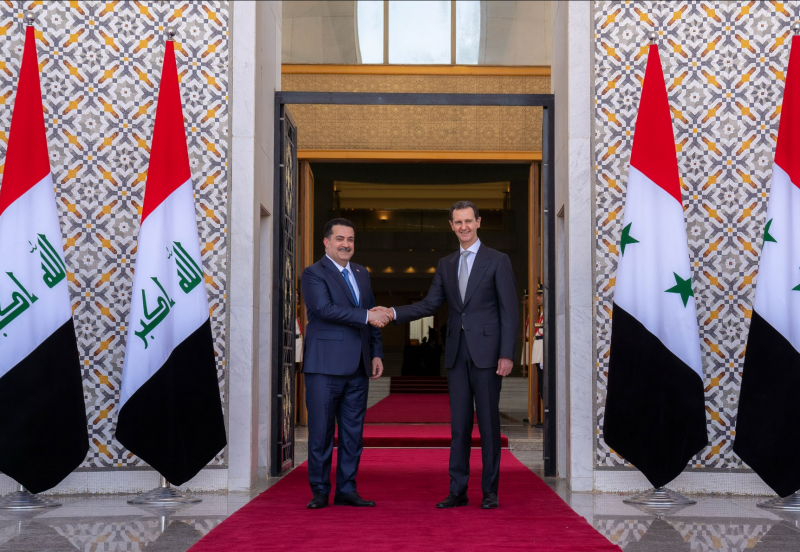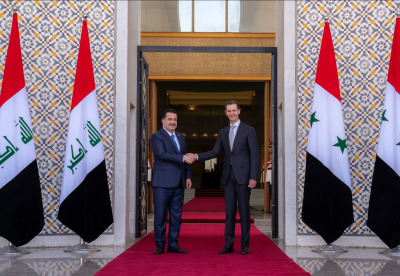Iraqi Prime Minister Mohammed Shia' al-Sudani held talks with Syrian President Bashar al-Assad in Damascus on Sunday, marking the first visit by an Iraqi Prime Minister since the outbreak of the war in Syria in 2011. They stated at a press conference that they discussed securing the approximately 600-kilometer joint border in light of security threats, including from ISIS militants, and added that they agreed to enhance cooperation to reduce drug trafficking. Al-Sudani mentioned they also discussed ways to combat drought in both countries resulting from decreased rainfall, climate change, and Turkey's dam construction. He emphasized the need for collaboration "to ensure fair water shares."
Al-Sudani expressed support for lifting U.S. and European sanctions imposed on Syria since 2011. Iraq and Syria maintain close economic, military, and political ties with Iran, and both Damascus and Baghdad have sustained their relations since the outbreak of the Syrian civil war, even as other Arab countries withdrew their ambassadors and closed their embassies in Syria. Baghdad and Damascus collaborated with Iranian-backed Shiite armed groups in the fight against ISIS, which expanded from Iraq into Syria and at one point controlled more than a third of both countries.
Before the meeting, the Iraqi Prime Minister’s advisor on foreign affairs, Farhad Alaeddin, stated that al-Sudani intended to address the trafficking of drugs, especially Captagon pills derived from amphetamines, and the prospects of reopening a pipeline for oil exports through the Mediterranean, which could help Iraq diversify its export routes. Al-Sudani's visit comes at a time when other nations, including Saudi Arabia, are rebuilding relations with Damascus after years of tension.
Syria's membership in the Arab League was suspended in 2011 due to Assad's brutal crackdown on protests, and several Gulf states supported the armed opposition to his rule. However, Assad has regained control over most of Syria with military and economic backing from Russia and Iran. Syria returned to the Arab League in May, and countries in the region are seeking dialogue with Assad to stop drug trafficking and repatriate millions of refugees. Syria has agreed to help halt drug smuggling across its borders with Jordan and Iraq. Recently, the U.S., U.K., and European Union have placed senior Syrian officials and Assad's relatives on sanctions lists over alleged ties to drug trafficking, which the Syrian government denies.




